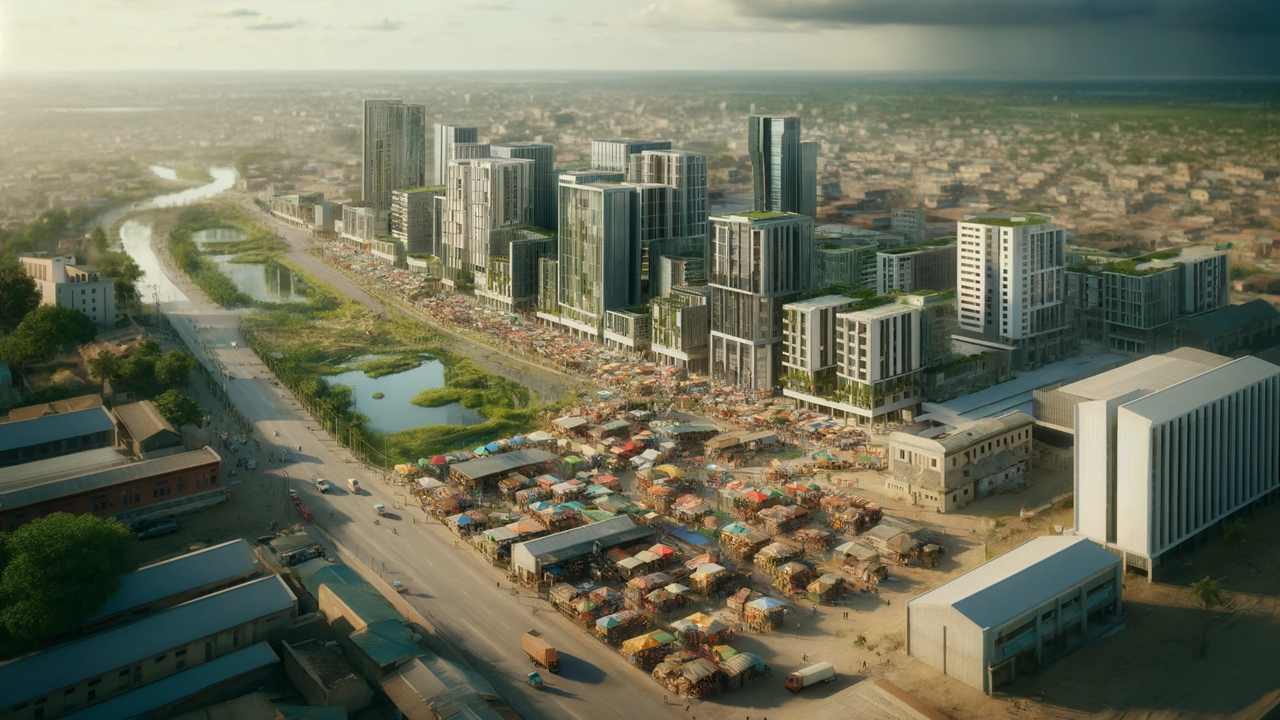Benin's Path to Resilient Growth Amid Climate Challenges
The World Bank report, "Adapting to Climate Change for Sustainable and Resilient Economic Growth," highlights Benin's robust economic growth in 2023 amidst regional and climatic challenges. It emphasizes the urgent need for climate adaptation to sustain growth and outlines policy recommendations for resilient development across key sectors. The report calls for investments in climate-resilient infrastructure, sustainable agriculture, and efficient public expenditure to mitigate potential economic losses from climate change.

In a recent report titled "Adapting to Climate Change for Sustainable and Resilient Economic Growth," the World Bank highlights the remarkable economic resilience of Benin despite facing numerous climate and regional challenges. The report sheds light on the nation’s robust economic performance in 2023 and emphasizes the urgent need for climate adaptation to sustain this growth.
Resilient Economic Performance
Despite regional uncertainties and the fragility in the northern part of the country, Benin's economy showed impressive resilience, with a growth rate of 6.4% in 2023. This performance marks an improvement from the previous year’s growth of 6.3%, demonstrating the country's ability to navigate through various shocks. The agriculture sector, vital for both growth and poverty reduction, saw a slight increase in growth to 5.1%. However, it still falls short of the pre-pandemic levels. The service sector, a significant driver of the economy, continued its expansion with a growth rate of 6.6%.
On the demand side, investment remained the main growth driver, while private consumption saw a decline due to rising prices, particularly of gasoline. Public consumption increased as the government aimed to maintain the well-being of the population amidst economic challenges. Benin’s GDP growth between 2021 and 2023 was notably higher than the average growth of 2010-2019 and favorably compared with regional peers.
Climate Change: An Urgent Call for Action
The World Bank report underscores the high macroeconomic costs of inaction in the face of climate change, projecting potential GDP losses of up to 19% by 2050 if no adaptation measures are taken. The primary driver of these losses would be the impact of heat stress on labor productivity, particularly in the agriculture and industry sectors.
The report highlights key sectors that require urgent adaptation efforts: agriculture, urban planning, transport, digital infrastructure, health, and education. For agriculture, which accounts for a significant share of Benin's economy, the focus should be on adapting agricultural practices, restoring forests, and investing in water resource management to maintain growth and food security.
Urban adaptation is equally critical. Sustainable cities and coastal management can mitigate the adverse effects of climate change. Investing in resilient transport and digital infrastructure will ensure that people and markets remain connected despite climatic disruptions. Strengthening the health and education systems to cope with climate-sensitive diseases and extreme weather events is essential to protect human capital.
Policy Recommendations for Resilient Growth
To ensure a sustainable and resilient growth pathway, the report outlines several key policy recommendations. These include increasing tax rates and broadening the tax base to improve domestic revenue mobilization. Efficient public expenditure is also crucial, focusing on climate-resilient public investment projects. Engaging the private sector through public-private partnerships (PPPs) can mobilize the necessary resources for climate adaptation.
The report also suggests specific policy options for each sector. For agriculture, strengthening the National Fund for Agricultural Development (FNDA) to better target financing to farmers and investing in climate-smart agricultural techniques are recommended. In urban areas, updating city master plans to incorporate climate resilience standards and developing early warning systems for extreme weather events are essential steps.
Call to Action
Benin's economic growth remains strong, but the looming threat of climate change poses significant risks. The World Bank report calls for immediate and decisive actions across all key economic sectors to mitigate these risks and ensure a resilient future. By prioritizing investments in climate-resilient infrastructure, sustainable agriculture, and urban planning, Benin can safeguard its economic gains and continue its trajectory of robust growth. The government’s commitment to improving domestic revenue mobilization and public expenditure efficiency will be critical in achieving these goals.
- FIRST PUBLISHED IN:
- Devdiscourse
ALSO READ
The Double-Edged Sword of AI in the Fight Against Climate Change
Hurricane Helene: A Storm Surge in the Climate Change Debate
Winter Sports on Thin Ice: A Climate Change Partnership
The Role of Public Health in Tackling Climate Change: Gaps, Challenges, and Solutions
India Hosts National Conference on Aligning CSR with Sustainable Development Goals










